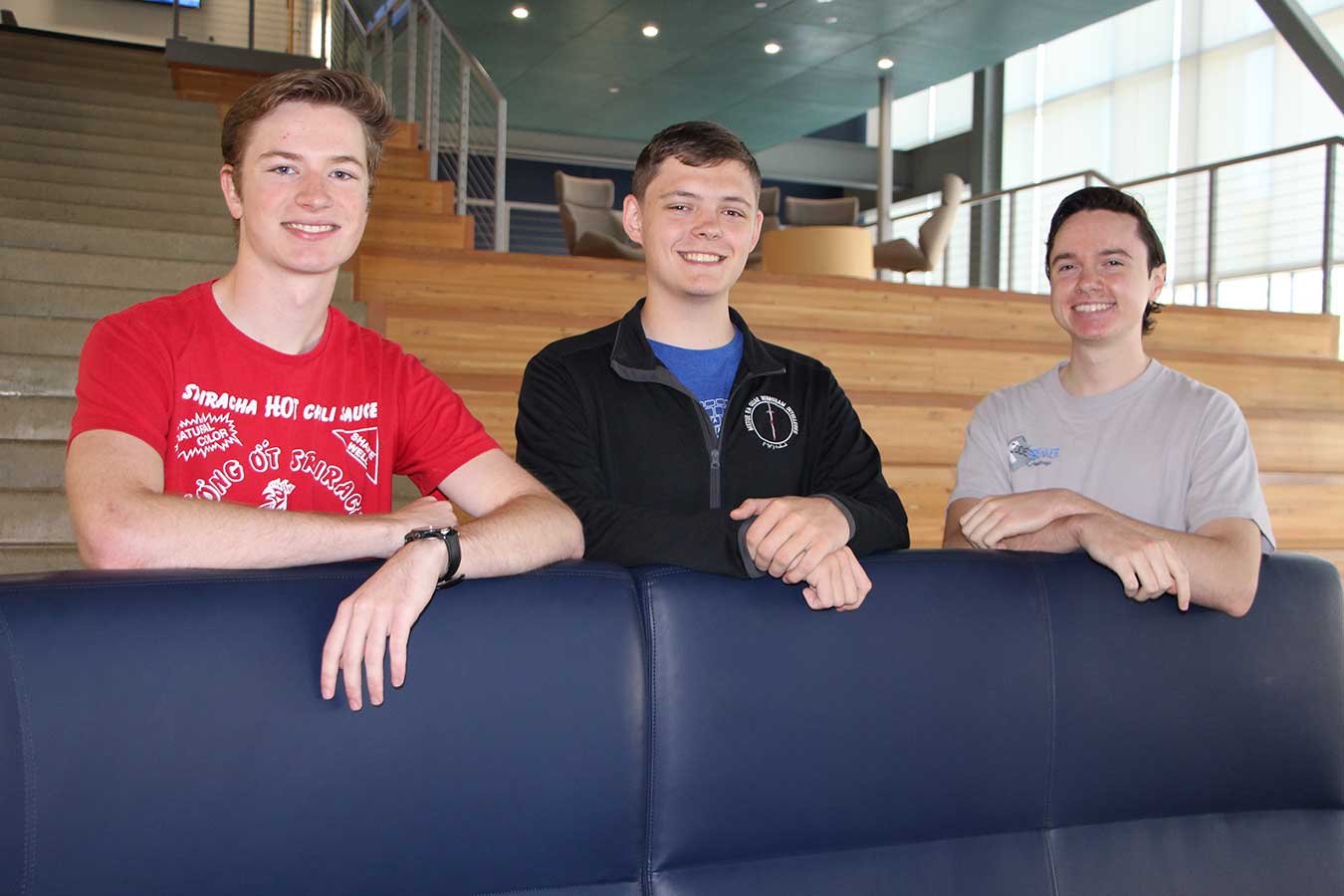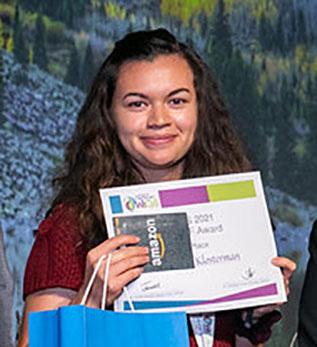DSU students win at Capture the Flag
October 15, 2021
No downsides to a CTF competition

Dakota State University students have been competing – and succeeding – in digital Capture the Flag (CTF) competitions for years.
Case in point, DSU teams have won first place in the CTF competition at Wild West Hackin’ Fest for two years in a row. This year, about 80 teams participated in the virtual competition, and the four DSU students will receive “Black Badges” which will give them free entry to the conference for life. This year’s team includes:
- Jake Hince, a computer science master’s degree student from Buffalo, Minn.
- Shane Donahue, a cyber operations major from San Diego, Calif.
- Austen King, a cyber operations major from Volga, S.D.
- Gaelin Shupe, a cyber operations major from Boulder, Colo.

Annabelle Klosterman won the Capture the Flag competition at this fall’s Women in CyberSecurity Conference.
Another student, Annabelle Klosterman, won the CTF at the September Women in CyberSecurity (WiCyS) conference. She is a cyber operations major from Brandon, S.D.
CTFs are often held over a period of two days, but all agree it is worth the time invested. They are always different, using different challenges and themes. “It’s just like the cybersecurity field,” Klosterman said, “No two days are ever the same.”
In fact, there are no downsides to competing in a CTF, Klosterman stated. “You learn, it builds your skills, making yourself better, and when companies hire these people, it’s better for the companies. It’s a win all around.”
DSU students all learn foundational skills in the classroom, but at a CTF, participants can fine-tune those skills and learn things they aren’t taught in classes, Klosterman said.
King agreed, saying a CTF is a way to apply classroom knowledge in a more complex way. For example, the reverse engineering skills he has learned in CTFs help in his reverse engineering classes.
The variety of challenges in a CTF exposes students to different skills, such as offensive and defensive techniques. “A CTF is the best way to learn skills such as cracking passwords or breaking number generators,” said Donahue. “This creates well-rounded skills,” he added.
Shupe said, “I think that CTFs are a great opportunity to practice problem-solving skills!”
Participating in these events also looks good on a résumé. Klosterman said a CTF “shows your abilities with hands-on skills, such as solving challenges, critical thinking skills, and that you have the ability to assess a problem and the technical skills to solve that problem.” Hince said that CTF participation “shows you will put yourself out there and learn outside of classes.”
DSU Vice President for Research & Economic Development Dr. Ashley Podhradsky donated free tickets for students to attend the Wild West event, which featured information security experts at talks, training sessions, and workshops. DSU faculty often provide students with free tickets to such events, and Hince said this generosity encourages student involvement in these conferences.
